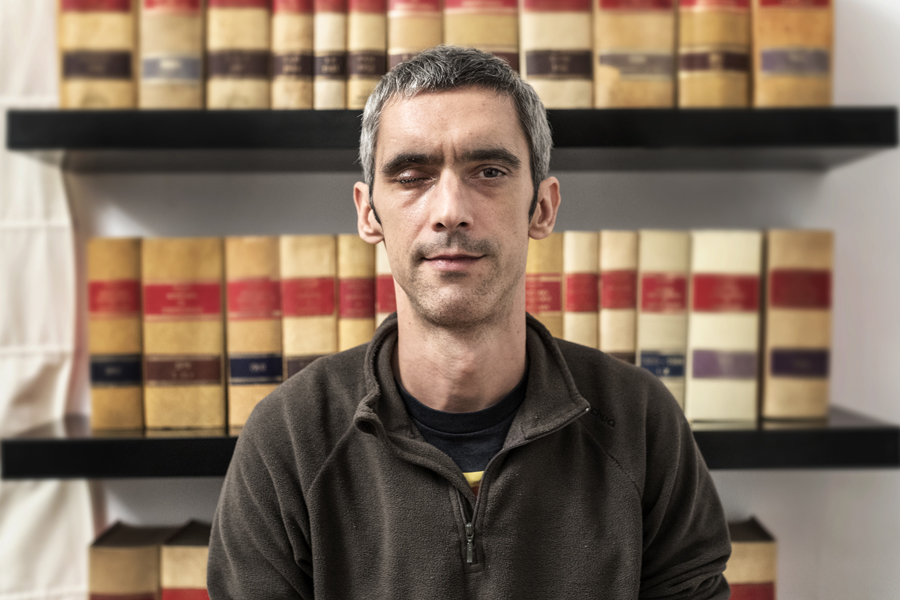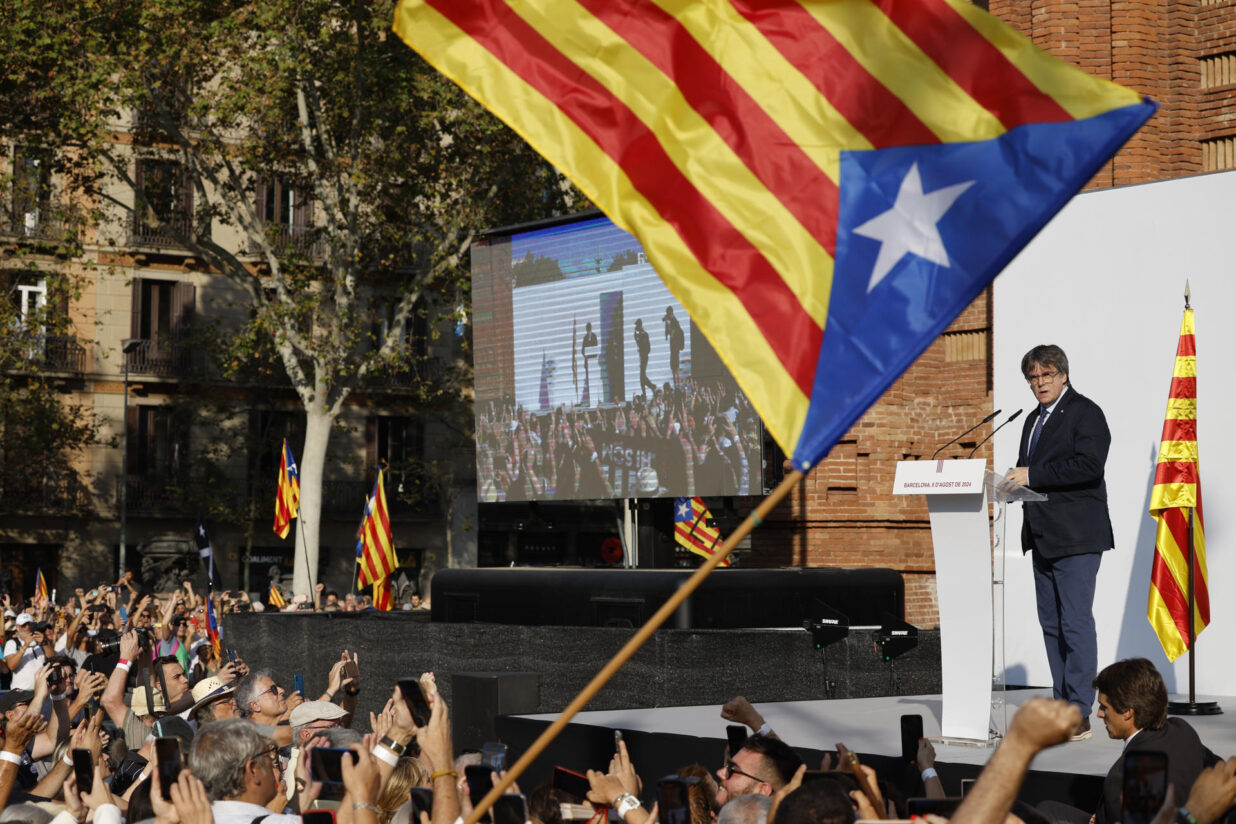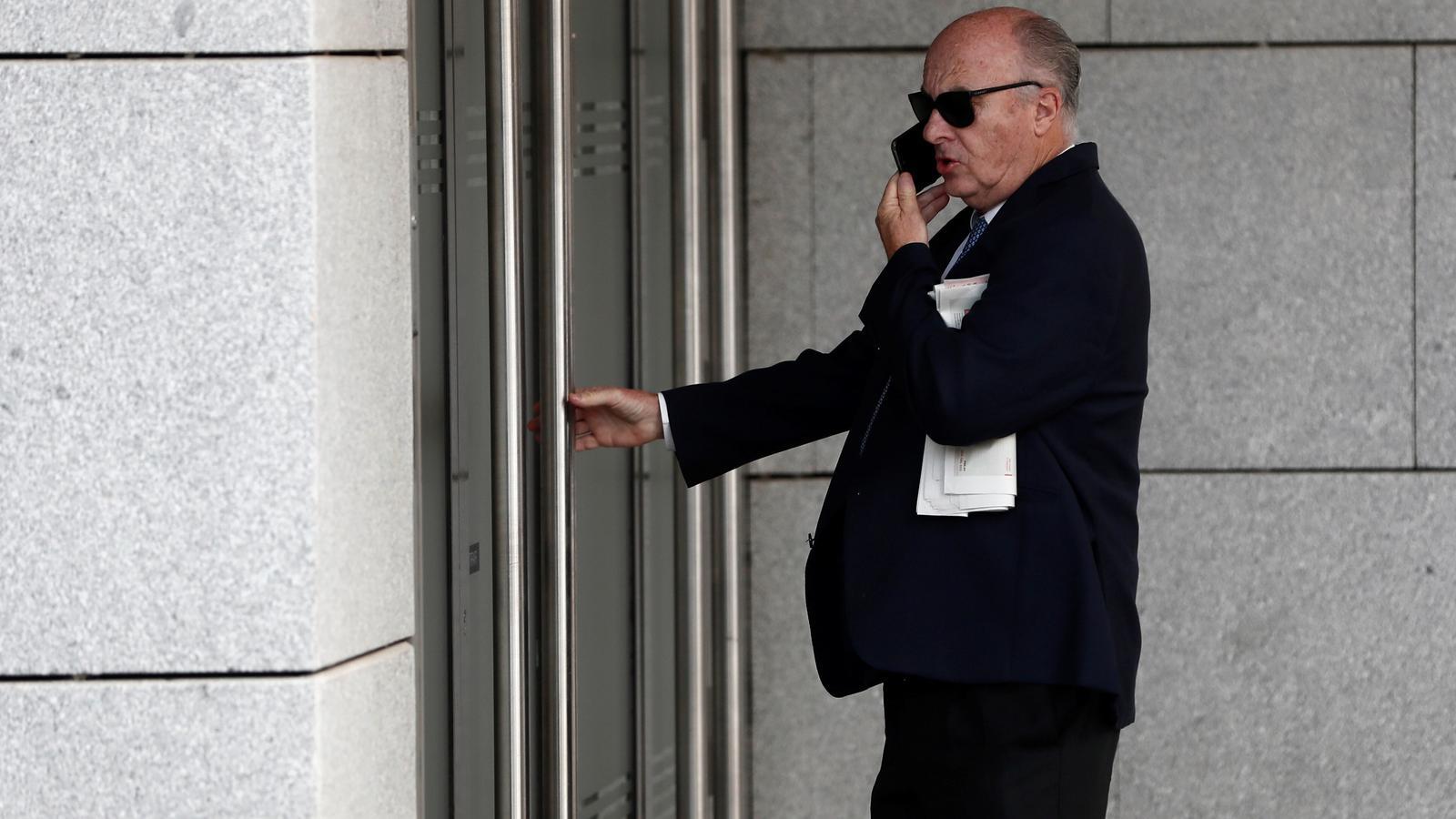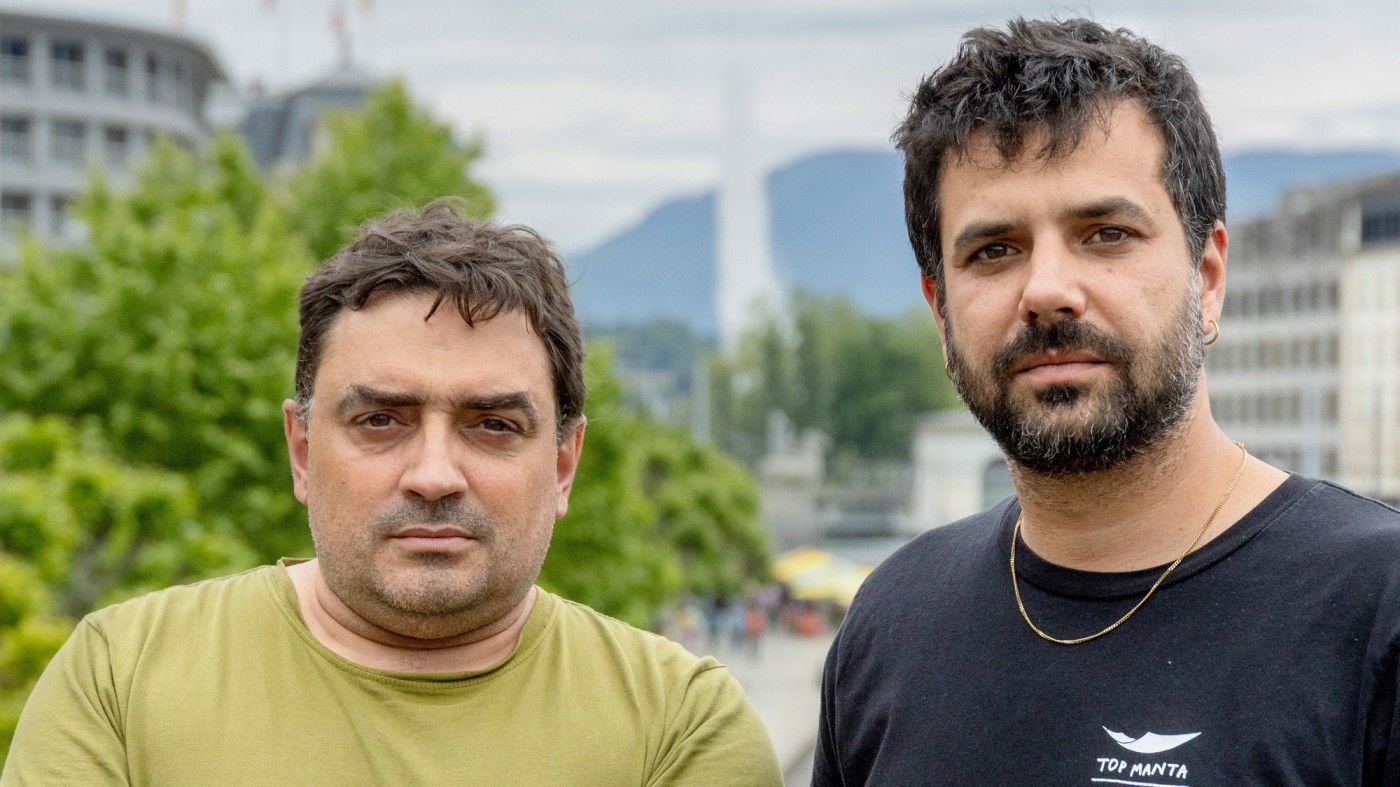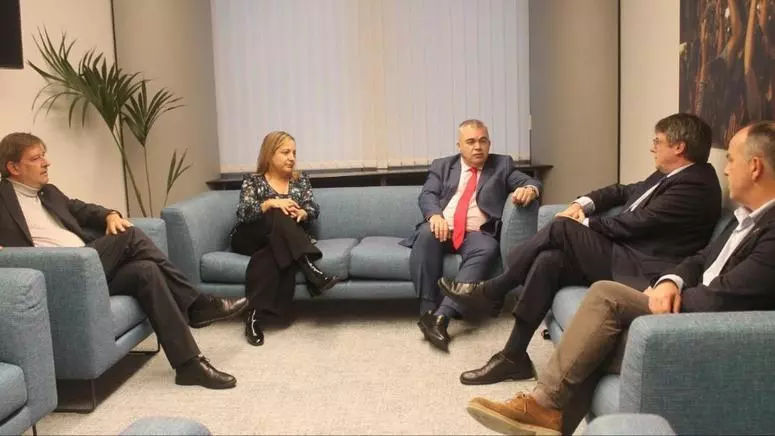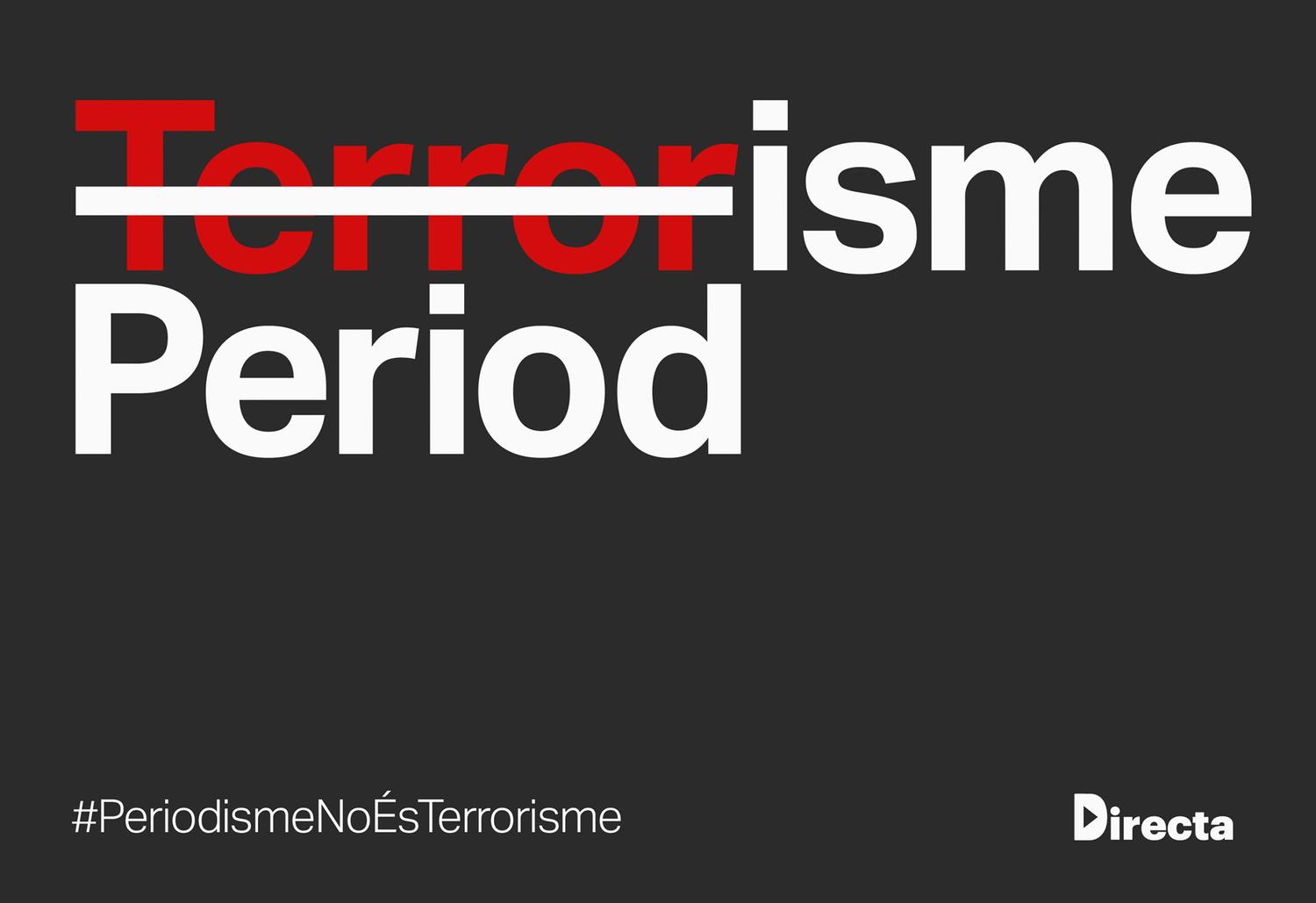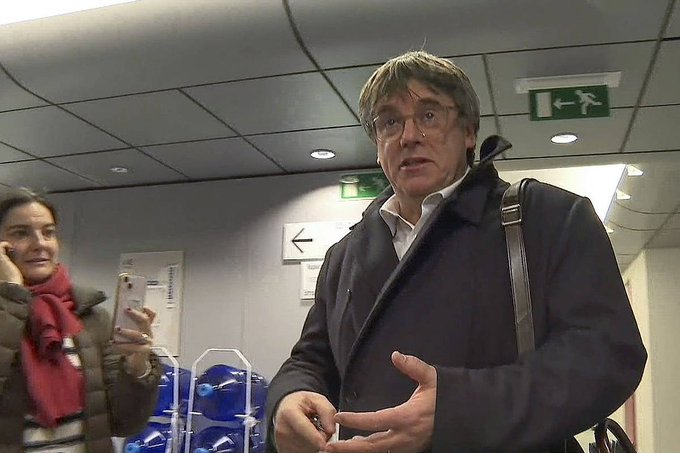"We underestimate the authoritarian character of Spain"
- We've been with him for twelve years. On the road to Waterloo in Belgium, many images come to mind at a gallop: The journalist Puigdemont, with the illusion, the strength and the despair of the process, the bitter echoes of that Corranda d’exili – “I will not die of nostalgia, I will live of nostalgia” –, the vengeance of Spain… The doors of the House of Catalonia were opened next to those fields in which Wellington defeated Napoleon and the president of Catalonia with open arms.

We met you in 1991 as a journalist. The field of communication in Catalonia has been forged over these decades. How has all this influenced the independence process?
In the field of communication it has happened as in the field of politics, Catalan journalism has spread to modernity and neither would have survived without that view and commitment. When the Internet was created, a group launched into the Internet and managed to put the Catalan media field at the forefront. At a time when we're immersed in digital society, that's been very important for us to be able to structure a strong independence movement. The movement could not be based on traditional media, because conventional averages are with traditional States. It has therefore touched me to live in a privileged way the transformation that is taking place in politics and journalism.
How should minority languages act against states? You spoke about this issue [remembers Zubiria, then director of Egunkaria] at that congress. Today, in Catalonia, the main media of the system also use Catalan. In this respect, they have also developed greatly.
There is talk of globalisation and overcoming borders, but it cannot be done if diversity is attacked; it is not compatible. On the contrary, diversity emerges with all its strength in a globalized world. For example, Google Translate is one of the biggest investments made by Google, it is no coincidence; with that it manages to share cultures, but based on the acceptance of languages. Google was easy to impose a single language, but it also made room for other languages, believing that it became more globalised. Therefore, the richness of languages is linked to peace and human rights, more linguistic diversity, more democratic guarantees.
You've known the advent of the Internet and also of social networks, you govern your Twitter account and in the procés your messages have had a great impact. Often, however, in social media it has become against you by force. How have you lived all of that?
Everything has its good and bad side, the problem is knowing where you are and mastering that context. You can't get into social media with media goggles, otherwise you'll be wrong. These networks will therefore do more to prepare and prepare our societies for this scenario. Taking into account the evolution of the last three years of paper media, if we do so, we will see that the future is hard for ellos.Por the opposite, through surveys and research, it is observed that electronic
media has increasing strength, especially in social networks. Of course, these have their dark side, the contranarrative or the engineering of false facts is also there, but this is not what has been created now. During the Second World War, the British secret services MI5 also used rumors and false news to confront the enemy. All this is explained very well in Marc Argemí's wonderful book Rumors in War. Its impact on paper was much more limited, but with social media it can give a lot of strength.
.jpg)
On the day of the referendum a group of Argia was in Barcelona, but I [Pello Zubiria] followed the day from my home computer, and I have the impression that that day you won the digital battle to the Spaniards. How did that happen?
When we talk about territorial control, we are forced to act on a digital territory that is not physical, and we control that very well. This framework is not unique to governments and, with the technological potential that exists today, it can be curbed by a well-organized group of citizens, for example, cyber-attacks on the universal referendum census. The Network is a tool for political transformation that will also transform the management of democracy and, therefore, the challenge is: Do we want to be the vanguard or walk behind? Catalonia has always wanted to be the vanguard. Therefore, before adopting general standards, which can also be debatable, we create our standards and do what we want.
In May 2006 we were [the two journalists who signed the interview] for the last time with you in Barcelona and at that meal you told us how in the CDC environment interesting reflections were being made about the sovereign movement and believed that this would bear fruit. Then, seeing how everything has gone, that thought has stuck in my head [says Letona].
We already saw where the situation was heading. We knew that the new statute would change the situation a lot, for better or for worse; if it went well, it would take a big step in the sovereign process, it would take away independence in time, but it would actually bring us closer. Should it go wrong, the Statute would become the catalyst for a new process. Of course, we didn't know what was going to happen, but we knew we were at that intersection.
Yes, it was a mistake not to continue on 10 October in Parliament with the declaration of independence
From there you devoted yourself to politics: CIU Parliamentarian, Mayor of Girona, president… and exile. Did you think, when you took the witness of Artur Mas, that it could happen like this?
Yes. To be honest, everything was in the situations that we analyzed about the possible consequences of the process. We were giving a chance to everything, and as we moved forward, jail or exile were there.
You said that Europe disappointed you. Did you wait any longer?
Europe has given me a great deal, I have been disappointed by the European institutions. We did not expect them to maintain our independence, but we did say something when an EU member violates fundamental rights. The EU is very brave when it talks about Hungary and very cowardly when it talks about Spain. A repressive state attacked more than two million people, most of them from a political and physical point of view. And that silence from the EU was very disappointing. Whether or not I agree with our process. Or will they only defend the rights of those who agree with them?
On the other side of the coin there are European countries – Belgium, Scotland, Germany, Switzerland – that have not accepted their extradition to Spain and have thereby nullified Spanish justice.
The judges in those countries decided this way, because there is a division of powers in those countries. Without the separation of powers and the independence of justice, we cannot speak of democracy. There is the problem of Spain. Angela Merkel could have a very good relationship with Mariano Rajoy, but she would never think of intervening in German justice to get her through.
.jpg)
Germà Bel, Junts Pel Yes are the words of your member of the group: “If you win a referendum, you must know how to execute it.”
It is true, but when you use the referendum as a democratic tool, looking at a supposedly democratic state and Europe, and you get an authoritarian response, you have to respond to the new situation that has been created. Spain could say, “Well, I don’t like the referendum, but I have to negotiate,” but he said, “you see, you’ll rot in jail and nobody else will think of doing that again.” We in the EU have tried an unprecedented path, to achieve the independence of a country without the use of violence, and we will continue to do so.
But it has the history of Spain, they brought thousands of policemen to Barcelona, the cry of “for them” in Spain… What do you think?
We believed that Spain has made a way in the last 40 years, 30 years in the EU… this would serve to resolve constitutional problems in an authoritarian way to overcome the Spanish tradition. But that was not the case, we despised the true nature of Spain. We have now seen in all their grief that we despised the Transition fraud. Now more than ever it has been understood what “tied and well tied” meant.
Between 1 and 3 October last year there was a state of revolt throughout Catalonia. Did the situation outweigh the Catalan Government?
No, it didn't surprise us. We have been in mobilizations for many years, the surveys are there, we know what the reality of Catalonia is and we are very well connected with it… and so, if you surprised someone, that means you lived in fantasy.
On October 10, 2018 ARGIA was already in the Parliament of Catalonia. It was a frightening, tense moment. You proclaimed the Republic of Catalonia and, through possible negotiation, temporarily suspended its consequences in the following second. Was it a mistake not to proclaim that day the republic altogether?
Spain said: 'You'll see, you'll rot in jail, and nobody's going to have a referendum.'
Yes, it was a mistake. With the explanation I will give I do not want to justify myself, I would like it to be useful in understanding the situation. With the data I had then I made the right decision. The Government of Spain directly explained to us that 1 October was a turning point and that dialogue was essential to get out of that situation, but a few days later we realized that we had been scammed. Yes, we were already suspicious that it had been dealt with, but at the request of the Spanish Government, I could not say no. We have learned, in a similar situation, that Spain will not have a second chance.
Would there be any change if the declaration of independence had advanced on 10 October?
I do not know, it would be speculation, but it is clear to me that over time the interval from 1 to 10 will become very important and the interval from 25 to 28 will become less important.
Subsequently, it has been published that hundreds of civilian guards were willing to enter the immediate vicinity of Parliament if the declaration of independence flourishes.
That became public when we were in exile and when the members of the government were in jail. I don't know if it's true or a lie.
.jpg)
Clara Ponsatí, Minister of Education of his Government: “I find it silly to think that the state is going to sit down and negotiate without rebellion.” These are statements made in the newspaper La Jornada de Vitoria last September.
The reflection made recently also serves this purpose. If you ask the Spanish Government for confidence, you must also give it confidence. But the trap is the basis of the political action of the Spanish Government. That was what happened to us and, therefore, everything that came next.
It is the anniversary of the referendum, the crowd is calling for the Republic to enter into force on the streets. What does lehendakari think at that time?
It is a mandate of the Basque Parliament on 27 October 2018, for many of us in very harsh conditions. This Order is in force and must therefore be complied with. But we must do so in the way we have planned: resolutely and effectively, without violence and, moreover, facing a state that wishes a violent situation. Every day we are making a republic, today Catalonia is more political subject than yesterday and next year will be more. The majority of Catalan society, whatever its way of thinking, knows that we are at an irreversible turning point.
What do you think of these two options? One, slow down the process, reflect on how to follow, manage institutions, accumulate forces… and then follow in another way; two, continue with the current process.
Both are compatible. We strengthen ourselves when we implement the Republic and if we do not do so we weaken it. Those who want to join forces know what they have to do: move forward.
They're different ways to move forward. In October, Jordi Cuixart made a special appeal to civil disobedience from Lledoners prison.
Civil disobedience has not been invented by us, it has been in all nonviolent struggles. Everything necessary for the recipe of victory must be put in place: to defend and keep regional institutions, civic mobilizations, international diplomacy, actions of disobedience… All of them are in the culture of non-violence.
That recipe for triumph he mentions will have to end in the negotiations with the Spanish State.
The State will decide whether such negotiations will take place before or after the international community knows us as independent republics. Before it is better, but otherwise it will.
Can autonomy with more competences fit into the sovereign process?
From the present situation and until independence everything has room, if the Catalans so decide, in the United Kingdom. On 1 October they could decide to stay as they are. If you agree to this in a referendum agreed with the Spanish Government, it will be a sovereign decision of the Catalans. In any case, there is not enough majority in the present Parliament – only the CSP wants it – for those who want to promote the statutory reform to do so.
The trial of the defendants could reach the end of January, according to the same sources. This is the second most important opportunity for the internationalisation of the independence process – the first was the referendum. What will be the key to the trial?
We have been internationalising the process for a year and one of the hottest moments was my arrest in Germany. This means that we probably have a big focus on it. We have to be very careful. For us, absolution is the only just solution. They are immersed in madness in Spain and it is essential to get out of it.

They will be in delirium, but it is a great opportunity to severely punish those who feel the primary responsibility for the process.
Yes, so does the public prosecutor representing the state, but we cannot enter into the debate on crime, because there is no crime here. From the point of view of prosecution, this court has no guarantee of the law, of the rule of law, and we shall now see whether or not Europe acts as with Poland. Voices in Europe have begun to condemn this situation, as a former candidate for the presidency of the French Socialist Party (PS).
What role does France play in the Catalan question?
[Emmanuel] Macron. France has a strong and serious judicial system, such as Belgium or Germany, but the ties between France and Spain are very strong. The French society is probably the most opposed to independence, but at the same time they are very dedicated to defending the foundations of a democratic society, they have very interiorized the defence of human rights.
What may happen in the trial and its chances of returning to Catalonia are linked. In that sense, the bad outcome can be very hard for you.
Well, you know, the exiles are not in trial. We were separated from that prosecution because European justice has rejected Spain’s requests.
Yes, we know, but if Oriol junqueras are sentenced to 10, 15, or 25 years, you too would be harmed.
That would be an aberration and would force us to fight much harder than now to denounce the attitude of a state that does not comply with the standard minimum of justice in Europe. Does Spain want to respond with a more authoritarian attitude to its already authoritarian image in Europe? Bad way. We have come to fight Belgium, not to hide. I was in prison for eleven days in Germany, four months on probation, and yet I still risk myself, because I have been in Germany and then in other countries, and I will continue to do so.
You said that in order to change things in Spain it would be necessary to unite the supporters of self-determination of the peoples and to organise ‘self-determinist tides’ – such as those of Podemos –. Do you see them feasible?
Yes. It is essential to bring together people who believe in republican values and self-determinists. In order to make the right of self-determination heard in Europe, a strong voice is needed, and also in order to be able to influence Spanish policy. It can be done in many ways, but this is one.
Article by Puigdemont in ARGIA
.jpg)
This has also been discovered by ARGIA journalists in Waterloo, arriving at an interview with the president of exiled Catalonia. Puigdemont was a young editor-in-chief when in 1991 we appeared in the newspaper El Punt looking for ideas for the new birth of Euskaldunon Egunkaria, “we came to do industrial espionage”. We were generously shown by the insides of the small newspaper that was starting to open from Girona to Catalonia. A few months later, Puigdemont, coming to San Sebastian to talk about press in minority languages, surprised us with his speech and his conduct: he seemed at home. If you look from a star, Inma Gomila remembers that dinner she made in her apartment. Soon the Internet would arrive, turning the communication field upside down and, as Carlos argued enthusiastically, giving new opportunities to the youngest to compete more dignified with the giants. He later received us at the Catalan News Agency, and then launched the Catalonia Today in English. He surprised us when he jumped into politics; he did not surprise us at the audacity he showed in his work as president. The 45 minutes have passed in Waterloo. A good wind, Carles, you and your family. (Above, article written by him in 1993 in ARGIA).
Lau agenteak lesio-delituengatik ikertzen ari dira eta horrek galarazten du 2024ko amnistia aplikatzea. Polizia horietako batek, ustez, gomazko bala batekin begi bat zartatu zion Roger Español kataluniarrari.
Walk from a train station, two friends and a hug. This hug will be frozen until the next meeting. I'll come home, he'll stay there. There, too, will be free the painful feeling that injustice wants us to catch. Jesús Rodríguez (Santa Coloma de Gramenet, 1974) is a journalist,... [+]











